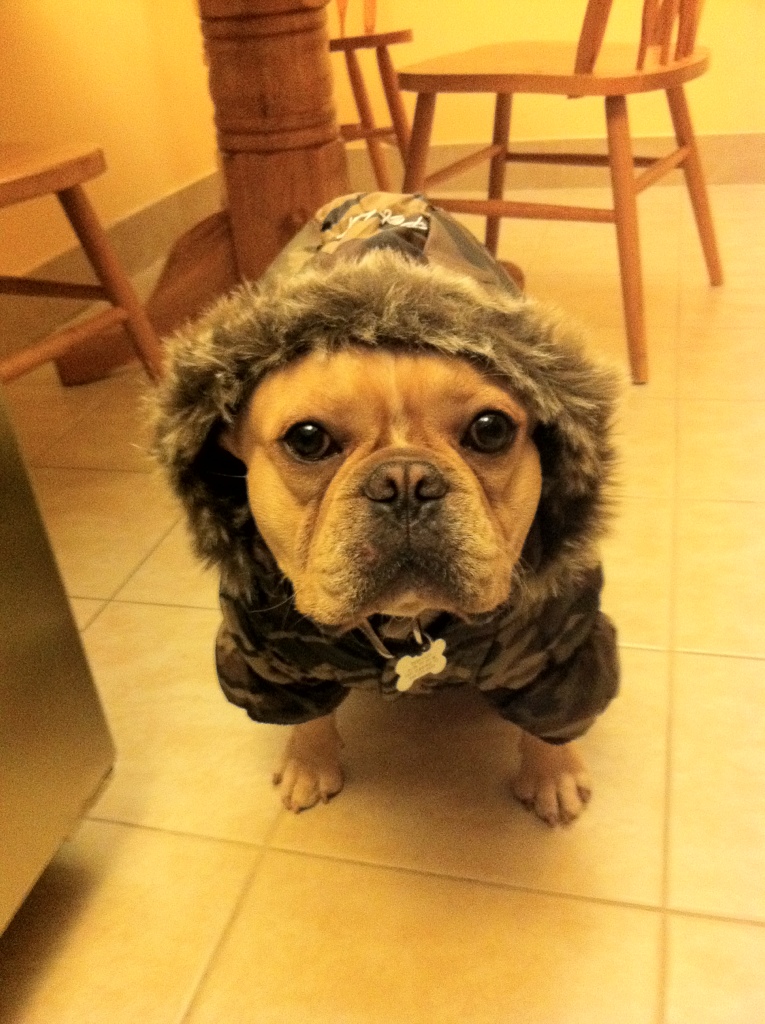Disaster Preparedness

Disaster Preparedness
Given what seems to be an increasing frequency of disasters, Frenchie owners should have emergency and evacuation plans in place for their animals as well as for their human family. First, make sure that your dogs are permanently identified (microchips or tattoos), and that they are trained (which makes them easier to handle in emergencies, especially if other people must help care for them). A basic “disaster kit” should be prepared and kept where you can grab it fast if you need to evacuate. It should contain for each dog:
■Collar (buckle type, not choke) with sturdy leash;
■Photocopy of registration papers and photo for ID purposes;
■Copy of health records with current vaccination record (essential if dog must be boarded) and name and phone number of your vet;
■At least a 3-day supply of non-perishable food, water, and medications;
■Dishes (unbreakable, preferably stainless steel);
■Blankets or bedding
■Crate (collapsible type best, and be sure ALL your dogs are crate-trained!);
■Plastic bags and paper towels for the inevitable scooping;
■Favorite toys;
■List of animal shelters, boarding facilities, friends/relatives, and hotels/motels near your area that will accept pets in emergencies, along with their phone numbers and addresses.
Even if you remain in your home your dogs may be fearful and anxious during and after an emergency, so crate them as they will probably feel safest in their ‘dens.’ If the emergency is storm related, be cautious about letting them outside after the worst has passed. Hazards may include downed power lines, dangerous animals and reptiles, and flooding (a big hazard for a breed that sinks like a rock, has a disproportionately heavy head end, and has no muzzle to keep the nose out of the water). A dog may be disoriented if familiar scents and landmarks in his normal environment are altered.
If you must leave your home, take along the disaster kit and transport the dogs in crates if possible to a place of safety. They may be excited, disoriented and behave irrationally, so keep them on leads when you take them outside. Sometimes anxiety-provoking situations will cause personality changes, so keep them separated if they should develop any problems with aggression.
Dog clubs can help prepare for emergencies by providing microchip clinics and basic obedience classes. They can help counties and states establish or run some sort of animal recovery team, and can put together a fund that would provide financial assistance to shelters or individual dog owners in disaster situations. Clubs can also form liaisons with local and regional agencies in advance of need, to see that shelter space is available and to donate supplies (crates, food, leashes, bowls). Club members can volunteer to help in an emergency by walking, feeding, grooming, cleaning crates and runs, and helping reunite owner and pets.
Members with kennels can help provide temporary housing , while those with vans, RVs, station wagons, and SUVs are especially helpful with providing transport.
The more advance preparations are made, the more likely your four-legged friends will survive.



Recent Comments